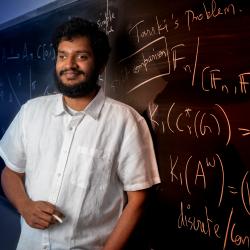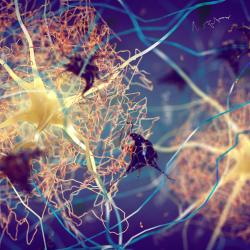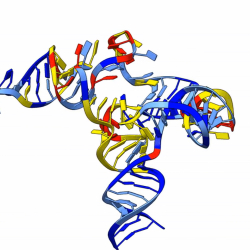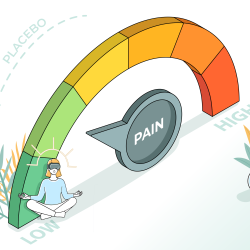College Welcomes 15 New Faculty Members this Fall
Faculty joined six departments and three research institutes in the college
The College of Computer, Mathematical, and Natural Sciences welcomed 15 new tenured/tenure-track faculty members to the University of Maryland this fall. Following are brief introductions to the new faculty members.
Daniel Abadi is the Darnell/Kanal Professor in Computer Science, with a joint appointment in the University of Maryland Institute for Advanced Computer Studies (UMIACS). He received his Ph.D. in computer science from the Massachusetts Institute of Technology in 2007. Abadi was previously a faculty member in the Department of Computer Science at Yale University, where he was an assistant professor from 2007 to 2012 and an associate professor from 2012 to 2017. He studies database system architecture and implementation, especially at the intersection of scalable and distributed systems.
Ricardo Arevalo Jr. (Ph.D. ’10, geology) is an associate professor in the Department of Geology. From 2010 to 2017, he was a research space scientist at NASA. His research focuses on analyzing the chemical composition of geological samples from Earth and meteorites; finding new ways to detect potential biosignatures from Mars-like and Europa-like Earth materials; and advancing next-generation mass spectrometers to measure inorganic and organic chemical signatures during exploration missions.
Jordan Boyd-Graber is an associate professor of computer science. He also holds joint appointments in UMIACS, the College of Information Studies and the Maryland Language Science Center. From 2014 to 2017, he was an assistant professor of computer science at the University of Colorado Boulder. He was an assistant professor of information studies at UMD from 2010 to 2014, with a joint appointment in UMIACS from 2011 to 2014. After Boyd-Graber received his Ph.D. in computer science from Princeton University in 2010, he was a postdoctoral fellow in the laboratory of Philip Resnik, a UMD professor in UMIACS and linguistics. Boyd-Graber uses machine learning to teach computers how to learn from and interact with humans.
Kevin Daniels is an associate professor with a joint appointment in the Institute for Research in Electronics and Applied Physics and the Department of Electrical and Computer Engineering. Daniels received his Ph.D. in electrical engineering from the University of South Carolina in 2014. From 2014 to 2017, Daniels was a postdoctoral fellow at the Naval Research Laboratory. He researches the growth of metallic, semiconducting and insulating two-dimensional materials—which consist of single layers of atoms—for applications in advanced environmental chemical and biological sensors, batteries and fuel cells.
Zohreh Davoudi is an assistant professor in the Department of Physics. Davoudi received her Ph.D. in 2014 from the University of Washington. From 2014 to 2017, she was a postdoctoral research associate at the Massachusetts Institute of Technology’s Center for Theoretical Physics. Davoudi studies strongly interacting systems of hadrons and nuclei using analytical and numerical techniques. Her research provides theoretical input for experiments searching for rare isotopes, exotic matter, new energy production mechanisms, violations of nature’s fundamental symmetries and dark matter candidates in the universe.
Furong Huang is an assistant professor with a joint appointment in the Department of Computer Science and UMIACS. Huang earned her Ph.D. in electrical and computer engineering at the University of California, Irvine, in 2016. From 2016 to 2017, she was a postdoctoral researcher at Microsoft Research. Huang studies machine learning, high-dimensional statistics and distributed algorithms.
Mong-Han Huang is an assistant professor in the Department of Geology. Huang received his Ph.D. in earth and planetary science from the University of California, Berkeley, in 2014. From 2015 to 2017, he was a postdoctoral fellow at the Jet Propulsion Laboratory. His research focuses on active tectonics and geomorphology. In addition, Huang uses methods including GPS and seismic measurements to explore earthquake sources, fault mechanics and the flow of Earth’s crust.
Scott Juntti is the first William J. Higgins Assistant Professor of Biology. Juntti received his Ph.D. in neuroscience from the University of California, San Francisco, in 2010. From 2010 to 2017, he was a postdoctoral fellow at Stanford University. Juntti researches cichlid fish social behaviors—such as mating, parenting and aggression—and uses genetic approaches to uncover networks of genes that control such behaviors. Additional information about Juntti’s appointment is available here.
Mark Leiserson is an assistant professor with a joint appointment in the Department of Computer Science and UMIACS. Leiserson earned his Ph.D. in computer science & computational biology in 2016 from Brown University. From 2016 to 2017, he was a postdoctoral fellow at Microsoft Research. He develops and applies algorithms and statistics to better understand the genetics of cancer.
Colenso Speer is an assistant professor in the Department of Biology. Speer received his Ph.D. in neuroscience from the University of California, Davis, in 2010. From 2010 to 2016, he was a research associate at Harvard University. He studies mechanisms of visual circuit development and structural plasticity and develops super-resolution imaging applications to quantitatively reconstruct how neurons are connected in visual circuits.
Brian Swingle is an assistant professor in the Department of Physics. In 2011, he received his Ph.D. in condensed matter physics from the Massachusetts Institute of Technology. Swingle was a Simons Fellow in Theoretical Physics at Harvard University from 2011 to 2014, a postdoctoral fellow at Stanford University from 2014 to 2016 and a postdoctoral fellow at Harvard University from 2016 to 2017. His research focuses on the physics of quantum information, especially in the context of quantum many-body systems and quantum gravity.
Pratyush Tiwary is an assistant professor with a joint appointment in the Department of Chemistry and Biochemistry and the Institute for Physical Science and Technology. Tiwary received his Ph.D. in materials science from the California Institute of Technology in 2012. From 2013 to 2017, he held postdoctoral fellow positions at Columbia University and the Swiss Federal Institute of Technology (ETH) in Zurich, Switzerland. Tiwary uses theoretical and computational methods to model and predict thermodynamics and dynamics in complex systems, with applications in pharmaceutical studies, chemistry and materials sciences.
Rodrigo Trevino (Ph.D. ’12, mathematics) is an assistant professor in the Department of Mathematics. From 2012 to 2015, he held a Mathematical Sciences Postdoctoral Research Fellowship that enabled him to conduct research at New York University, Cornell University and Tel-Aviv University in Israel. From 2016 to 2017, he was an assistant professor at the City University of New York. He researches dynamical systems, geometry and mathematical physics.
Xiaodi Wu is an assistant professor with a joint appointment in the Department of Computer Science and UMIACS. He received his Ph.D. in computer science from the University of Michigan in 2013. From 2013 to 2015, Wu was a postdoctoral fellow at the Massachusetts Institute of Technology and a Simons Research Fellow with the Simons Institute for the Theory of Computing at the University of California, Berkeley. From 2015 to 2017, he was an assistant professor in the Department of Computer Science at the University of Oregon. Wu researches quantum information and computation, quantum cryptography, quantum programming languages, mathematical optimization and theory of computation.
Matthias Zwicker is the first Reginald Allan Hahne Endowed E-Nnovate Professor in Computer Science, and he holds a joint appointment in UMIACS. He obtained his Ph.D. in computer science from ETH in Zurich, Switzerland, in 2003. From 2003 to 2006, he was a postdoctoral associate at the Massachusetts Institute of Technology. Zwicker was an assistant professor at the University of California, San Diego, from 2006 to 2008. From 2008 to 2017, he was a professor of computer science at the University of Bern, Switzerland. His research focuses on efficient high-quality rendering, signal processing techniques for computer graphics, data-driven modeling and animation, and point-based methods. Additional information about Zwicker’s appointment is available here.
###
Media Relations Contact: Irene Ying, 301-405-5204, zying@umd.edu
University of Maryland
College of Computer, Mathematical, and Natural Sciences
2300 Symons Hall
College Park, MD 20742
www.cmns.umd.edu
@UMDscience
About the College of Computer, Mathematical, and Natural Sciences
The College of Computer, Mathematical, and Natural Sciences at the University of Maryland educates more than 7,000 future scientific leaders in its undergraduate and graduate programs each year. The college’s 10 departments and more than a dozen interdisciplinary research centers foster scientific discovery with annual sponsored research funding exceeding $150 million.







